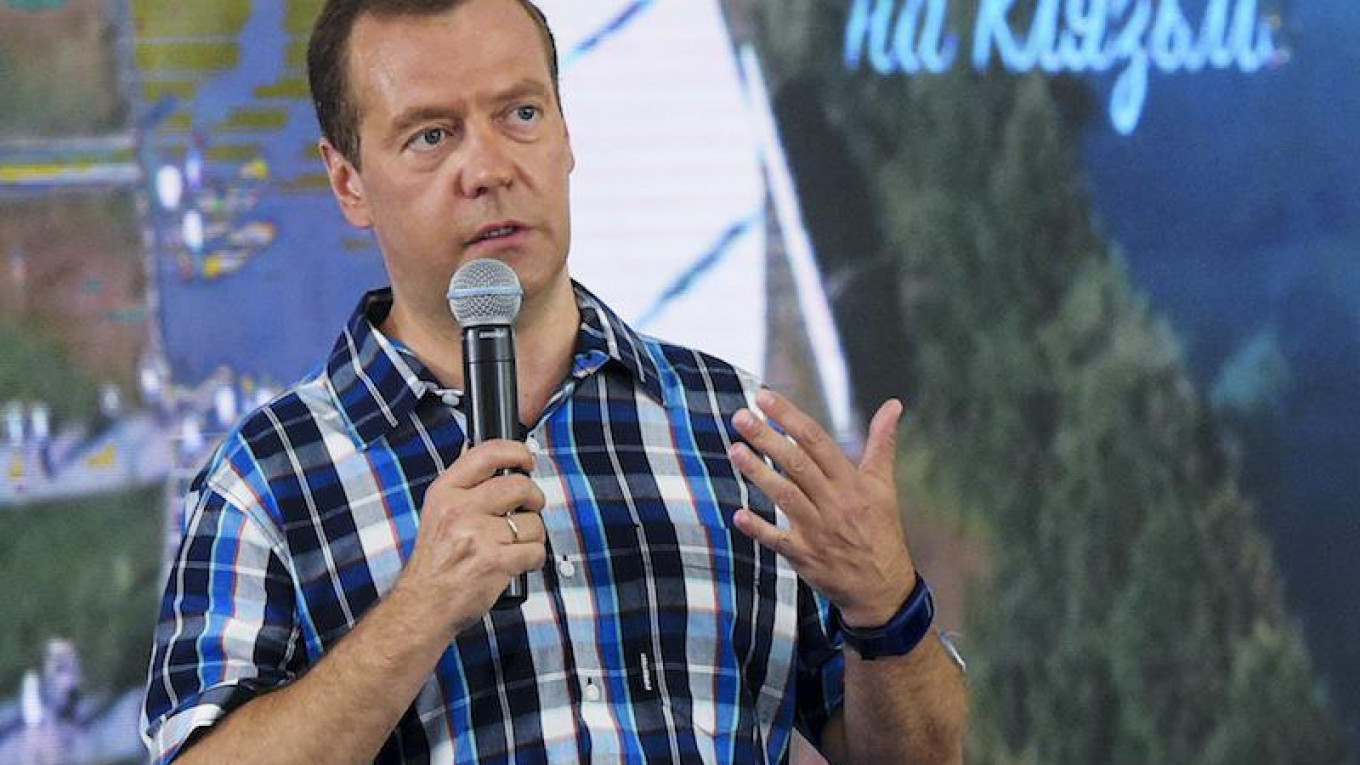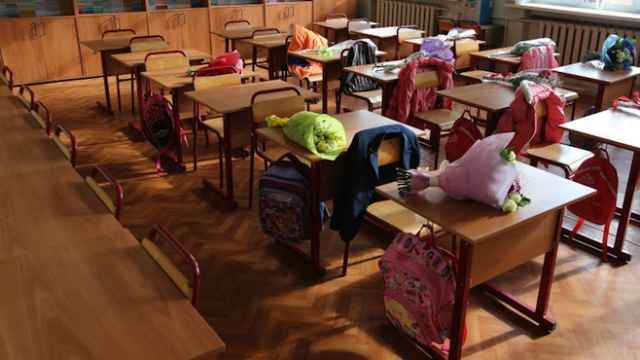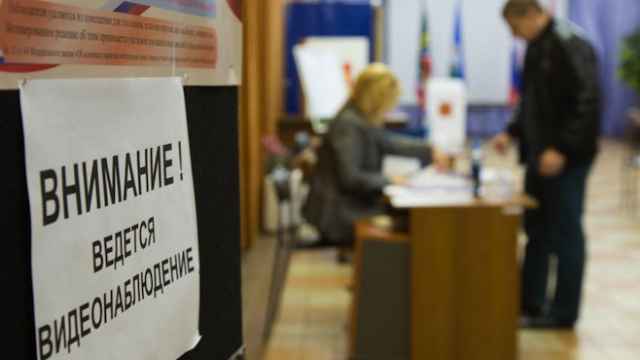On August 3, during an education forum, a schoolteacher dared to ask to
ask Prime Minister Dmitry Medvedev a direct question about teachers’
extremely low salaries. The prime minister’s response was blunt. "If you want to earn money, there are lots of beautiful places where you can do it faster and better," he said.
Russians see their leaders now make no effort to even pretend that they
are interested in the welfare of their citizens. All the same, it seems
strange that with elections just around the corner, Medvedev – who
formally heads the ruling party United Russia – would allow himself to
utter such words. Then again, in Russia, the words and actions of
politicians have little or no impact on the outcome of elections.
Medvedev already gained notoriety for his recent remarks to residents of
Crimea. “There’s no money, but you hold on in there." After that comment,
his response to the Dagestani teacher could hardly tarnish his
reputation further.
Even more interesting is how little hope or vision Medvedev – Russia’s
second-highest ranking official – has for the country’s development.
To economize on teachers’ salaries is to condemn the country to serious
problems in the future. That is obvious. It will inevitably result in a
low-quality system of education.
Ultimately, teachers will universally
be viewed as failures, exceedingly average people who lack the
initiative to go into business or some other more profitable line of
work. This means ever fewer capable young people will choose to become
teachers, and students will end up with less instruction time, and more
free time during school hours. This, in turn, will lead to a rise in
juvenile crime and a host of other problems.
For some reason, this does not bother the country’s leaders. Is it due
to Russians’ habit of thinking that things will somehow work out by
themselves? Or is it because leaders know that other people will have to
deal with the problems they create today?
Every country suffers economic crises from time to time. You can gauge
the effectiveness of a government by its ability to minimize the
negative effects of those crises. As with any sector, there are ways to
cut costs in education as well.
For example, every year the government publishes a huge number of very
standard but expensive textbooks that schools receive at no cost.
Reducing the publishing cycle to once in three or four years would save
tens of billions of rubles.
However, after businessman Arkady Rotenberg, a close friend of President
Vladimir Putin, became co-owner of one of Russia’s largest publishers
of school literature, that cost-saving measure apparently got dropped
from the agenda.
Reforming the bloated and costly bureaucracy for education oversight
would also save budgetary funds. Not only does the current system fail
to help schools, it actually burdens them with a vast load of
unnecessary paperwork and disrupts the educational process with frequent
inspections.
The problem is that the state bureaucracy is the most reliable bulwark
for the Russian authorities, and is apparently inviolable to budget cuts
or downsizing.
Of course, the authorities could also find other ways to cut costs. But
why should they bother, if they can pursue their own interests at
people’s expense without any fear of reprisal, just as Soviet leaders
did before them?
Teachers will find ways to make ends meet. They did so in the past, even
during the relatively prosperous 2000s, when their salaries, in most
regions, hovered near subsistence levels. In fact, funding for education
differs by region, and it is therefore no surprise that a teacher from
Dagestan – one of Russia’s poorest regions – confronted Medvedev with
this issue.
School staff rooms will not go empty. People are still accustomed to
living on the state’s payroll for the sake of stability, pitiful but
guaranteed pensions, and because the private sector remains so
underdeveloped.
However, very few young teachers remain at their posts,
and potential new ones have practically abandoned the field in much the
same way that they did during the economic hardships of the 1990s.
In 10-15 years, Russia will face a shortage of teachers aged 35-40 – the
most productive age. At the same time, most teachers who began their
careers during the Soviet period will reach retirement age, and it will
be impossible to replace them.
Those teachers who do remain will not waste their time preparing for
lessons or such extracurricular activities as hikes, day trips, stage
performances, or other experiences that are so important for children
and youth. They will devote their free time to giving private lessons or
picking up odd jobs in order to survive.
Medvedev said that teaching is a calling. Perhaps it is, just like any
other challenging activity. But why did he argue that anyone following
that calling must necessarily live in poverty?
The teaching profession demands special qualities. The task before any
civilized government is to support people who pursue such callings,
because it is ultimately in the public’s best interest.
It seems, however, that Russia’s president and prime minister have other
more important tasks.
Alexei Kuznetsov teaches history at a secondary school in Moscow
A Message from The Moscow Times:
Dear readers,
We are facing unprecedented challenges. Russia's Prosecutor General's Office has designated The Moscow Times as an "undesirable" organization, criminalizing our work and putting our staff at risk of prosecution. This follows our earlier unjust labeling as a "foreign agent."
These actions are direct attempts to silence independent journalism in Russia. The authorities claim our work "discredits the decisions of the Russian leadership." We see things differently: we strive to provide accurate, unbiased reporting on Russia.
We, the journalists of The Moscow Times, refuse to be silenced. But to continue our work, we need your help.
Your support, no matter how small, makes a world of difference. If you can, please support us monthly starting from just $2. It's quick to set up, and every contribution makes a significant impact.
By supporting The Moscow Times, you're defending open, independent journalism in the face of repression. Thank you for standing with us.
Remind me later.







